Dec
16
2009
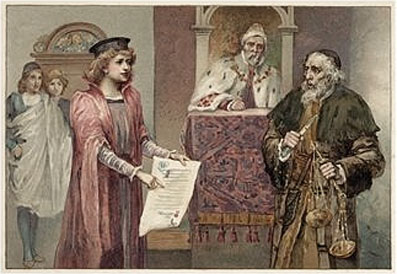
or Cooking the Golden-Egg Goose
Gary North has a free course on reducing your debt. Part of the plan is an application of the 5-point Covenant structure. Basically, God calls a man, gives him a job to do, and returns at the end to assess the man’s work. North refers to the parable of the talents in Matthew 25:
Continue reading
2 comments | tags: Dominion Theology, Economics, Gary North, Herod, Revelation, Worship as commerce | posted in Biblical Theology, Christian Life, Quotes, The Last Days
Dec
11
2009
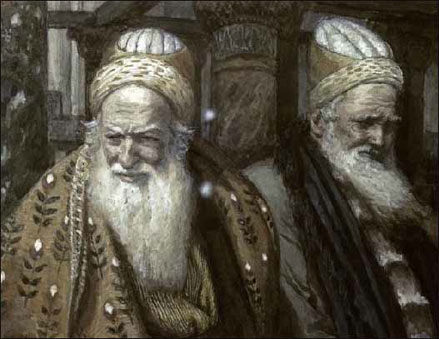
“Paul knew his kinsmen. This is a group of people on whom this tactic would work.”
Doug Wilson has been preaching through Romans (subscribe to his podcast now!) and recently commented on his blog about Romans 11, and the relationship between Christians and Jews today.[1] I’ll have to listen to his sermon to figure out whether Doug sees this as interpretation (“all Israel” is yet to be saved), or application.
I made some comments and a gent called Lemuel replied, and I made some more. It brings out the significance of the phrase “the sons of God.”
Continue reading
1 comment | tags: AD70, Circumcision, Compromise, Doug Wilson, Galatians, Gary DeMar, Judaisers, Noah, Romans, Ruth | posted in Biblical Theology, The Last Days
Dec
10
2009
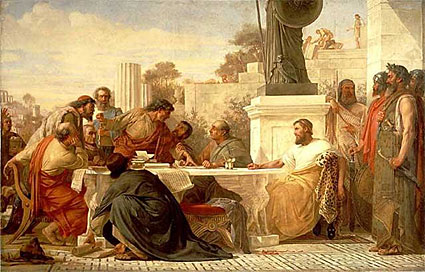
Ending the False Dichotomy of Blood and Spirit
NOTE: THIS POST HAS BEEN REMIXED AND INCLUDED IN GOD’S KITCHEN.
The Old Testament is a bloody book. Beginning with Adam’s “dissection” to build Eve and the animals the Lord made into tunics, it culminates in Revelation with the massacre of saints under Herod/Nero (Revelation 14) and then the massacre of Jews under Vespasian and Titus.
Continue reading
2 comments | tags: Amillennialism, Church History, Dispensationalism, Jewish war, John Piper, Martyrdom, Nero, Postmillennialism, Revelation | posted in Biblical Theology, Quotes, The Last Days
Dec
10
2009
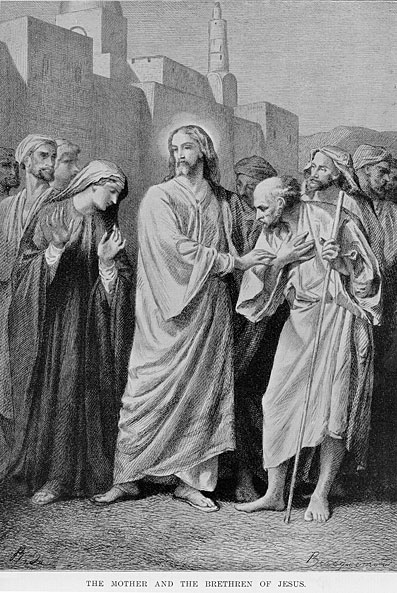
or The First Shall Be Last
Yesterday’s post concerning Jesus’ message to John had some discussion about lepers becoming New Covenant priests. Those who were condemned to live outside were made clean and invited in. Of course, there is Jesus’ own condemnation of those who watched harlots and tax collectors enter the kingdom but defiantly stood outside themselves.
Right up until the end of the Jewish war, the Jewish leadership got their clean and unclean, their inside and outside, more and more wrong. The gospel turned their world upside down–or, in fact, rightside up.
John Barach observes how Mark applies this to Jesus’ own family using literary structure: Continue reading
Comments Off | tags: John Barach, Literary Structure, Mark | posted in Biblical Theology, Quotes, The Last Days
Dec
9
2009
Jesus built a new Tabernacle before He tore down the old one that was ready to pass away. This is the basis of His message to John in prison:
Continue reading
Comments Off | tags: Acts, Bible Matrix, Jericho, John the Baptist, Kelby Carlson, Paul, Tabernacle, Trumpets | posted in Biblical Theology, The Last Days
Dec
8
2009
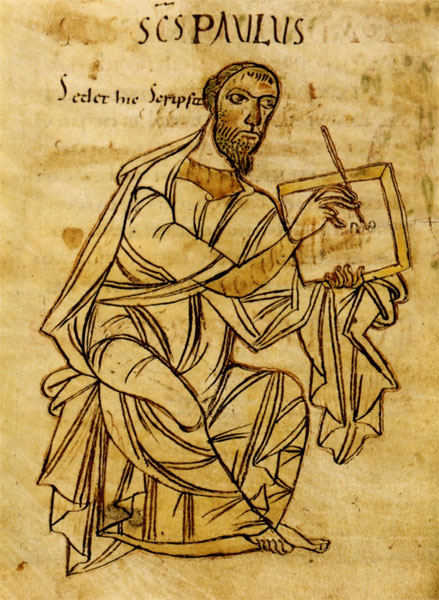
I say then, has God cast away His people? Certainly not! For I also am an Israelite, of the seed of Abraham, of the tribe of Benjamin. God has not cast away His people whom He foreknew. Or do you not know what the Scripture says of Elijah, how he pleads with God against Israel, saying, ”LORD, they have killed Your prophets and torn down Your altars, and I alone am left, and they seek my life”? But what does the divine response say to him? “I have reserved for Myself seven thousand men who have not bowed the knee to Baal.” Even so then, at this present time there is a remnant according to the election of grace. Romans 11:1-6
Romans 11 is one of those watershed passages. How one interprets it depends on one’s “plan of the ages” paradigm. If you haven’t read James Jordan’s The Future of Israel Re-examined, you need to. Due to its ramifications for interpretation of much of the New Testament, I believe it should be recognised as one of the most important writings of our time. It puts Romans, and especially chapters 9-11, fairly and squarely within a first century context. All would be fulfilled before AD70. God would make “a short work” in the Land. And He did.
It also helps with the interpretation of Revelation. Christ was a new Moses, just as Elijah was. He ascended and gave a double portion of His Spirit to the church as Elisha. The new body witnessed to Gentiles to provoke the hard-hearted Jews to jealousy. This has nothing to do with our day. It was a process confined to the end of the Old Covenant.
Continue reading
Comments Off | tags: Balaam, Hermeneutics, Herod, James Jordan, Jezebel, Paul, Romans | posted in The Last Days
Dec
7
2009
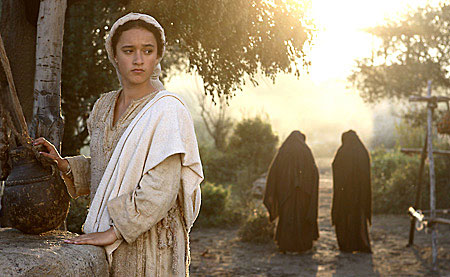
or Receiving the Implanted Word
Mary’s song, like most songs in the Bible, seemed to me to contain mostly extraneous material. My modern mind couldn’t relate her words to the version of Christianity I was familiar with. I guess that’s because it was a version bereft of much understanding of the Old Testament.
Mary’s song seems to follow the matrix pattern. As such, it is a new Creation, and a new Tabernacle, (John 1:14, “dwelt” is literally “tabernacled”). It is the liturgical response of the bride to the promise of Covenant succession – the Covenant succession. This new generation was also regeneration.
Continue reading
Comments Off | tags: Atonement, Azal, Bible Matrix, Christmas, Daniel, Dispensationalism, Feasts, Holy Place, Luke, Mary, Moses, Revelation | posted in Biblical Theology, The Last Days
Dec
3
2009
or Weeping over Jerusalem
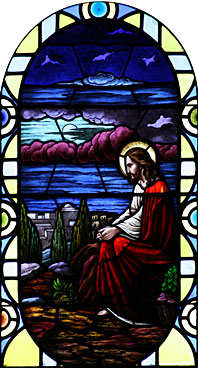 Then Jerusalem, all Judea, and all the region around the Jordan went out to him and were baptized by him in the Jordan, confessing their sins. But when he saw many of the Pharisees and Sadducees coming to his baptism, he said to them, “Brood of vipers! Who warned you to flee from the wrath to come? “Therefore bear fruits worthy of repentance, ”and do not think to say to yourselves, ‘We have Abraham as father.’ For I say to you that God is able to raise up children to Abraham from these stones.” —Matthew 3:5-9
Then Jerusalem, all Judea, and all the region around the Jordan went out to him and were baptized by him in the Jordan, confessing their sins. But when he saw many of the Pharisees and Sadducees coming to his baptism, he said to them, “Brood of vipers! Who warned you to flee from the wrath to come? “Therefore bear fruits worthy of repentance, ”and do not think to say to yourselves, ‘We have Abraham as father.’ For I say to you that God is able to raise up children to Abraham from these stones.” —Matthew 3:5-9
Then, as He was now drawing near the descent of the Mount of Olives, the whole multitude of the disciples began to rejoice and praise God with a loud voice for all the mighty works they had seen, saying: ” ‘Blessed is the King who comes in the name of the LORD!’ Peace in heaven and glory in the highest!” And some of the Pharisees called to Him from the crowd, “Teacher, rebuke Your disciples.” But He answered and said to them, “I tell you that if these should keep silent, the stones would immediately cry out.” —Luke 19:37-40
The Bible is consistent with its symbols, so what is it with stones crying out? Continue reading
Comments Off | tags: Abel, Cain, Elijah, Exodus, Hebrews, John the Baptist, Joshua, Lot, Moses, Resurrection, Toby Sumpter, Uri Brito | posted in Biblical Theology, Quotes, The Last Days
Dec
2
2009
or Totus Christmas
The next twelve orders of Totus Christus will receive a free copy of Jordan’s amazing Revelation lectures.* Details on ordering here, and details on the 204 lecture series here.
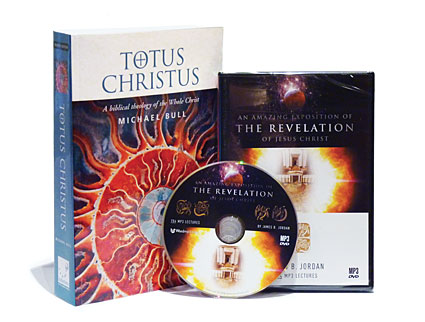
Jordan’s lectures are the gold ring in the pig’s snout in this deal.
*Note that this doesn’t include the student freebies.
9 comments | posted in The Last Days, Totus Christus
Nov
18
2009
What was the Reformation?
———————————————————————————
“The unity of Rome is the unity of unbroken Adam and unbroken Saul.
It is a unity that will not go to the cross to be broken and resurrected.
It is a unity that would not confess when confronted by Nathan.”
———————————————————————————
 Have been having some debate with Bryan at “Called to Communion” blog on the nature of the church. Was the Reformation a rebellious schism or did the true church outgrow Rome? No guarantees on my scholarship but here’s some large excerpts that might be helpful or at least thought-provoking. Mike in roman type, Bryan in italic.
Have been having some debate with Bryan at “Called to Communion” blog on the nature of the church. Was the Reformation a rebellious schism or did the true church outgrow Rome? No guarantees on my scholarship but here’s some large excerpts that might be helpful or at least thought-provoking. Mike in roman type, Bryan in italic.
* * * * *
I agree with you that the Church that Christ founded is not “limited to any human institution”; we believe that it is a divine-human institution, because its founder is both divine and human. But its being a divine-human institution does not mean that it is a “merely human” institution, nor does it mean that it is not a human institution. To deny that it is a human institution is, in that respect, to deny Christ’s humanity. It is to assume (mistakenly) that the only kind of human institution there can be is a merely human institution. That’s like claiming that the only kind of human there can be is a mere human, not a divine human.
Before Jesus ascended, He gave the keys of the Kingdom to Peter. Christ still governs the Church, of course, but He does so through those whom He gave authority. That is why it is right for us to “Obey [our] leaders and submit to them, for they keep watch over [our] souls, as those who will give an account.” (Heb 13:17) That would not make any sense if only Christ governed His Church from heaven.
The church that Christ founded was not limited to any human institution as far as a centralised government goes. With the ascension of Christ, the government of worship by men moved from earth to heaven. It is now out of Satan’s reach and thus incorruptible. Local churches, as in Rev 2-3, are frequently assessed by Christ, and either nursed back to health, or, if consistently rebellious, he “snuffs” them out. Whether or not they remain as institutions, they are no longer part of the body – just as the cicada shell of Judaism is today.
* * * * *
Continue reading
Comments Off | tags: Reformation, Reformers, Roman Catholicism | posted in Biblical Theology, The Last Days


































